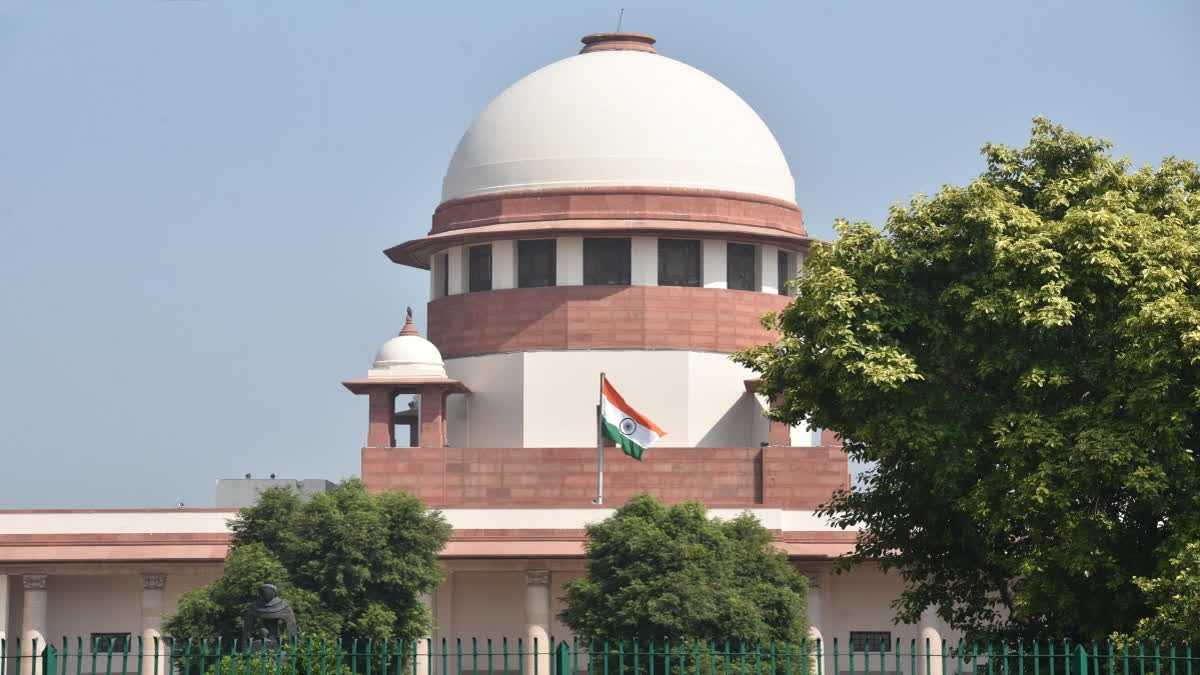New Delhi: Against the backdrop of a large pendency of cases, the Supreme Court has stressed that if parties' are inclined to arrive at a compromise then courts should encourage compounding of offences under the Negotiable Instruments Act. The Act governs all negotiable instruments like promissory notes, bills of exchange, and cheques.
A bench comprising of Justices Sudhanshu Dhulia and Ahsanuddin Amanullah said: "When the accused and complainant have reached a settlement permissible by law and this court has also satisfied itself regarding the genuineness of the settlement, we think that the conviction of the appellants would not serve any purpose and thus, it is required to be set aside".
Regarding the principles of compounding of offences in the context of NI Act, the bench said it is to be remembered that dishonour of cheques is a regulatory offence which was made an offence only in view of public interest so that the reliability of these instruments can be ensured.
"A large number of cases involving dishonour of cheques are pending before courts which is a serious concern for our judicial system," said the bench, in a judgment delivered on July 11.
The apex court stressed that keeping in mind that the 'compensatory aspect' of remedy shall have priority over the 'punitive aspect', courts should encourage compounding of offences under the NI Act if parties are willing to do so.
Citing the Raj Reddy Kallem v. the State of Haryana (2024), the bench said this court followed the same principles and quashed a conviction under the NI Act, by invoking its powers under Article 142, even though the complainant therein declined to give consent for compounding, observing that the accused has sufficiently compensated the complainant.
The bench made these observations while setting aside the conviction of one P Kumarasamy in a cheque bounce case, noting that the parties have entered into a settlement agreement and Rs 5.25 lakh has been paid to the complainant.
In 2006, P Kumarasamy had borrowed Rs 5.25 Lakh from respondent A Subramaniam but did not repay the loan. Kumarasamy gave a cheque for Rs 5.25 lakh in the name of his partnership firm M/s New Win Export. The cheque was dishonoured due to "insufficient funds", respondent filed a complaint under Section 138 NI Act against the appellants and the trial court On October 16, 2012, convicted the appellants and imposed a sentence of one year of simple imprisonment each.
The appellate court reversed the findings of the trial court and acquitted the appellants. The respondents moved the High Court. The High Court on April 1, 2019, set aside the order of the appellate court and restored the order of the trial court, convicting the appellants. Later, the matter reached the apex court.
"As per the agreement, the appellants have paid Rs.5,25,000 to the respondent-complainant, who has agreed to settle the present matter for the said amount. Also, the complainant does not have any objection if the conviction of the appellants is set aside," noted the bench.
The apex court said this settlement agreement can be treated to be compounding of the offence and all the same, Section 320 (5) of CrPC provides that if compounding has to be done after conviction, then it can only be done with the leave of the court where appeal against such conviction is pending.
The apex court said considering the totality of the circumstances and compromise between the parties, “we allow this appeal and acquit the appellants by setting aside the impugned order dated April 1, 2019, as well the trial court's order dated October 16, 2012. appellant no.2 (P Kumarasamy), who was exempted from surrendering by this Court, need not surrender and his sureties are hereby discharged."



